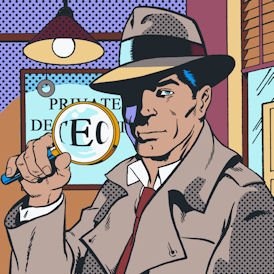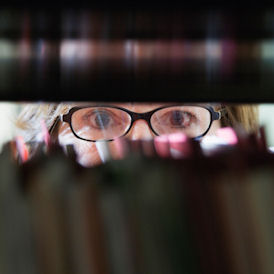Watching the detectives
As an MP calls for proper regulation of private detectives in the wake of the phone-hack revelations, one investigator tells Channel 4 News about the inner workings of his shadowy trade.

The phone-hacking scandal has swept across the media, ending the News of the World’s 168-year-old run and derailing Rupert Murdoch’s bid to take over BSkyB.
But so far, the other group embroiled in the scandal has managed to keep largely out of the spotlight – not least because keeping in the shadows is their bread and butter.
In almost all of the accusations of phone hacking and “blagging” which have surrounded newspapers in Rupert Murdoch’s News International stable, a private investigator has worked hand in hand with the journalist.
This should not have come as a surprise. A report from the Information Commissioner’s Office in 2006 detailed an “extensive illegal trade in confidential personal information” of people of all walks of life, from celebrities to one man who painted the house of a lottery winner.
Six months later, an update entitled What Price Privacy Now? said there had been some progress – but not enough.
James Bond it isn’t. Private investigator Neil Sheppard
It said: “Investigations by the ICO and the police have uncovered evidence of a widespread and organised undercover market in confidential personal information… Among the ultimate ‘buyers’ are many journalists looking for a story… The ‘suppliers’ almost invariably work within the private investigation industry.”
Journalists who engage in these practices are beginning to be exposed, amid calls for more regulation – but what about the investigators? Today in Parliament Labour MP Chris Bryant said it was a “shocking” fact that there was no regulation of the private investigation industry, and called for an inquiry into the phone-hacking scandal to address this.
But who are the private investigators behind the stories, and how do they work? And could these shadowy figures be hacking a phone near you? Channel 4 News hears about the tricks of the trade from one private investigator.
Disgusted at illegal and immoral requests
Neil Sheppard, the regional director for the Midlands region of Allied Detectives, a private investigation agency, says he is “disgusted” by what some people calling themselves private investigators are alleged to have done for newspapers.
He says he is asked “all the time” to do things which are either illegal or immoral, but he believes that the majority of private investigators in the United Kingdom would immediately run in the opposite direction.
“James Bond it isn’t,” he told Channel 4 News. “Most of us are operating legally, as a small business. We are not after a fast buck on a bad news story.”
However, he said there are plenty of people calling themselves private investigators who are operating outside the law.
It is estimated that there are more than 10,000 private investigators working in the UK, Mr Sheppard said – but only 1,200 are registered with the Information Commissioner’s Office and appear on the data protection register.
The combined membership of the two trade organisations, the Association of British Investigators (ABI) and the World Association of Private Investigators, is around 1,000.

Both professional bodies have codes of conduct for members. The ABI has a code of ethics, a legal helpline, and requires its members to have certain standards – for example, to be Criminal Record Bureau (CRB) checked. They can also strike members off. But there are no hard and fast regulations.
“So anyone can wake up, go to Argos, buy a camera and call themselves a private investigator,” Mr Sheppard said. And for those who operate illegally, the rewards can be huge.
“For us, it’s an hourly fee plus expenses. But for illegal operations, which we do not do, you’re looking at thousands upon thousands of pounds – and often the clients are able to pay,” he said.
He said investigators who are prepared to break the law tend not to use any particular gadgets which are not otherwise available to the rest of the trade, but instead have contacts or are “blaggers”, spending their days on the phone extracting information by pretending to be someone else.
But he said, in his mind, this was not what his industry was about.
“If you phone around as a client, even in the last month, you will find people who will blag but they will be careful because people know it is illegal,” he said.
“But I would hate to call these people private investigators. The vast majority are operating legally, morally and ethically. Porridge isn’t on the menu for me. But there are some who are willing to take that chance.”
Who hires private investigators, and how do they work?
Clients range from businesses chasing money, to councils observing antisocial behaviour, to the stereotype of divorce cases. But in most cases, the people hiring private investigators are lawyers.
Private investigator Neil Sheppard told Channel 4 News: “Most people think we are all shadowy characters following wayward spouses – that’s a part of it but most of our instructions come from lawyers.”
He admits that they have a “whole host of gadgetry”, including surveillance vehicles and mini cameras in bags, but said a lot of their information is obtained from public records like the land registry.
Many investigators are ex-police or military, and those who are operating legally would not compromise themselves through “blagging” information, he said.
“I know police officers but I would never compromise myself or them by asking for information which often I could get another way. Shortcuts cost you money and maybe send you to prison,” he said.
He said that they did sometimes have to deal with “confrontation”, admitting he was once confronted in a dark alley at 2am by a man holding two lit petrol bombs. He pretended to be drunk, and escaped unnoticed.